🎗️Lonny's War Update- October 718, 2023 - September 23, 2025 🎗️
🎗️Day 718 that 48 of our hostages are still in Hamas captivity🎗️
On Rosh Hashanah eve: Hamas releases video of hostage Alon Ohel
Terror group releases a new video of hostage Alon Ohel hours after sending a letter to Trump seeking a 60-day ceasefire, escalating psychological warfare tactics against on Israel amid stalled negotiations
The move comes an hour following a report that the terror group issued a personal letter to U.S. President Donald Trump seeking a 60-day ceasefire while releasing half of the 48 hostages still held in the Strip.The letter highlights Hamas’s recognition of Trump’s growing influence in the region. Yingst noted that both Hamas and other actors in the Middle East “understand that President Trump is a dealmaker,” pointing to his role in brokering the Abraham Accords during his first term. Trump has repeatedly said he wants peace in the Middle East, the return of the hostages and stability for the region.- IDF chief said to tell captive families he’s pushing for hostage-ceasefire deal
IDF Chief of Staff Lt. Gen. Eyal Zamir met with the families of seven hostages, telling them he was pushing the government to reach a ceasefire deal that would see them freed, Channel 12 reports.
The meeting came as the military pushes ahead with an offensive to capture Gaza City, a move the hostage families have decried, saying it endangers the captives. Zamir is also widely reported to have told the government he opposed the plan.
“According to Channel 12, the families told Zamir that they would hold him responsible if the hostages were harmed. However, at the same time, they also said that they were relying only on him to secure their freedom, noting that the government had rejected Zamir’s recommendations.
Zamir, meanwhile, told them that he was responsible for the actions of the IDF in Gaza and was always keeping the hostages in mind.
“I authorized this operation myself and the head of the Southern Command is carrying it out responsibly,” the report quotes Zamir as saying. “I’m the one who authorizes any advances.”
Zamir is also quoted as saying that he supports a hostage-ceasefire deal even after launching the offensive.
“I am in favor of an agreement, I’m pushing for an agreement, and I will continue to push to bring about an agreement,” he tells them.
German chancellor blasts ‘dehumanizing’ video of hostage Alon Ohel released by Hamas on Rosh Hashanah
German Chancellor Friedrich Merz blasts the “dehumanizing” propaganda video published by Hamas of hostage Alon Ohel, decrying its release on the Jewish holiday of Rosh Hashanah.
“The dehumanizing footage of the German-Israeli national Alon Ohel, which Hamas published of all times on Rosh Hashanah, is unbearable. Hamas must immediately release all hostages,” Merz writes on X. “The ceasefire must come now, the suffering must end.”
The Hostages and Missing Families Forum requested that media outlets not publish the video until the family gives approval.
Alon’s parents, Irit and Kobi Ohel, said after the release of the video that their son is losing sight in his right eye and demanded that he see an eye doctor before any more humanitarian aid is approved or negotiations are held with Hamas.
They said the family was “shaken” by the footage, in which “it is clear that Alon is losing his vision in his right eye, and he is thin and frightened.”
Ohel, 24, a talented pianist, went to the Supernova desert rave with several friends, reaching the party at 5:30 a.m., an hour before the Hamas attack began. Ohel and his friends fled to a field shelter, which was later attacked by terrorists, with many of those inside murdered.
Ohel was taken captive along with Hersh Goldberg-Polin, Eliya Cohen and Or Levy. Goldberg-Polin was murdered in captivity, while the latter two have been released as part of hostage deals.
Dozens protest for hostage deal outside minister’s home; police forcibly remove demonstrators
Dozens of protesters calling for a hostage deal are gathered outside the home of Education Minister Yoav Kisch, a day after three demonstrators were detained at a rally outside the Likud lawmaker’s residence.
Video shows police forcibly removing protesters from the area. video
According to the Ynet news site, one officer yelled at the protesters that they are “lawbreakers who refuse to leave.”
In a statement, the protesters tell the outlet that “Kisch is personally responsible for the political arrests. He is not only removing democracy from the high school curriculum, but he is sending the Israel Police to arrest demonstrators who are exercising their democratic right to protest.” link Kish is the antithesis of an educator in a democratic society. He has repeatedly had the police forcibly remove protesters from near his house despite that they had legal rights to protest where they were. Through his education ministry, he has given explicit instructions that schools throughout the country are not allowed to discuss the hostages in the classroom, nor display any material in support of the hostages. He has removed subjects such as civil rights of protests and speech from school curriculum and exams. And the latest to come from the ministry under his control is the October 7 study guide that does not mention anything about any hostages whatsoever, not the taking of the 251 hostages on October 7, not the 42 hostages killed while in captivity, no hostage deal, nothing about the 48 hostages still in Gaza and nothing about any protests supporting the hostages and their families. He has demonstrated himself to be the perfect example of a Netanyahu lackey and has debased the education system in doing so.
Kish is a former Air Force pilot and his actions as a politician and Netanyahu lackey have proven to be an embarrassment to every pilot and soldier fighting in this war.- ‘We have no holiday’: Hostage families mark second Rosh Hashanah without loved onesFor the second year, hostage families mark Rosh Hashanah in grief and hope, clinging to love, memory and a desperate plea to bring their children homeFor the second time, families of hostages are marking Rosh Hashanah without their loved ones, with the parents of Ran Gvili, Bar Kupershtein, and Matan Angrest sharing the altered meaning of the holiday and their hopes for the new year.“When everyone celebrates, we face our hardest hours,” they said. Talik and Itzik Gvili, Ran’s parents, recall a home once filled with life, large family gatherings and parties. Since Ran’s abduction, the holiday has taken on a different weight.“We’re a big family on both sides,” Talik said. “Our home was always open, everyone felt welcome. Since October 7, we decided to keep living because Ran would want that. He was vibrant, a dancer who loved parties. Now there’s a huge void. Every day is tough but filled with hope.” Itzik added, “Ran was the most sensitive soul—tough and strong, yet gentle. His absence is felt every moment.” Despite fears for the future, they believe military action is key to bringing hostages home. “We don’t think Hamas will negotiate. They’re inhuman.Talik and Itzik Gvili with photo of their son(Photo: Meir Even Haim)“Maybe this operation will push them to raise a white flag,” Talik suggested, with Itzik agreeing, “Hostages could be harmed in any scenario, even without a maneuver. Their only leverage is the hostages. It’s a brutal situation.”In January 2024, it was reported that Sergeant First Class Ran Gvili, a 24-year-old Israel Police counter-terror officer, fell in battle at Kibbutz Alumim on October 7, 2023, with his body taken to Gaza.Yet, his parents cling to hope. “We can’t accept the report that Ran isn’t alive. We hope it’s a mistake. The odds aren’t in our favor, but we still hope he’ll return,” Talik said. Their New Year wish is simple: “That he’s alive. That he returns and laughs with us about this horrific time.”A father’s resolve to walk againTal Kupershtein, Bar’s father, lost his ability to speak for years after a car accident left him bedridden, but since Bar’s abduction, he relearned to talk, driven by one goal: to voice his son’s plea. With a trembling voice and tears, he persists, awaiting the day Bar hears him.
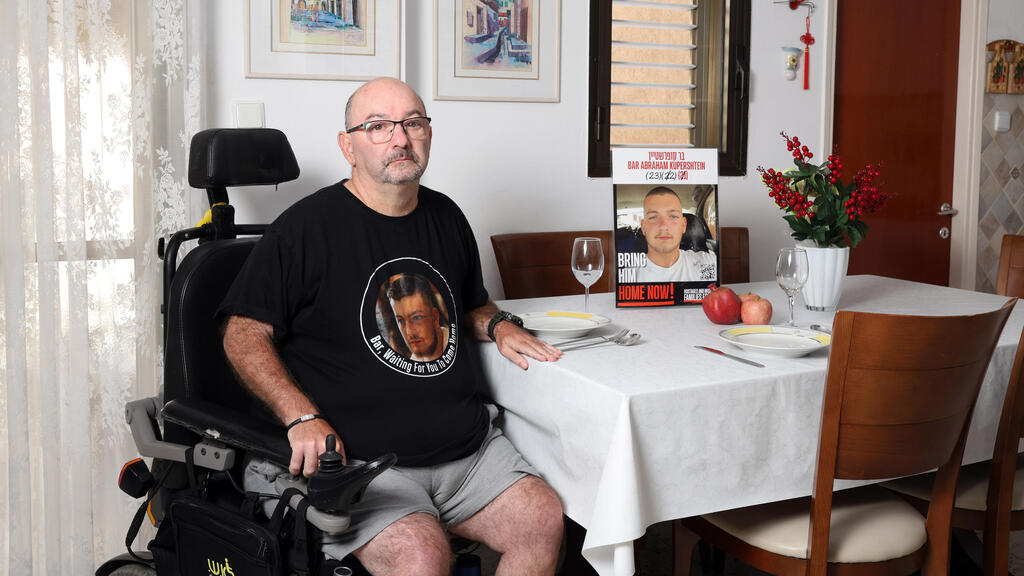 Tal Koperstein(Photo: Dana Kopel)“He hasn’t heard me speak yet. It’s important he knows I’m talking,” he said. For two years, Tal has envisioned reuniting with his son. “The first thing I’ll do is hug him. I’ll walk to him on my own legs.” Memories of Bar sustain him, like a photo of them with falafel from Tal’s pre-accident shop, which Bar managed during his hospital stay.“We worked together for a month or two. We were very close. I volunteered with the police, taught shooting. He followed me, learned from me. I was a medic on a motorcycle and he’d help with the wounded. It fascinated him.”Tal draws strength from Bar’s care, noting, “When my caregiver took weekends off, Bar looked after me. He was born at Wolfson Hospital, and I delivered him. He was sweet from the start, didn’t study much but always aced tests.”This year, he and his wife Julie, who is religious, will host the holiday eve at home with Bar’s younger siblings and possibly his grandparents. “We celebrate because Julie is religious,” he explained. His New Year wish for Bar is direct: “That Bar returns.”A holiday lost in griefAnat and Chagai Angrest, Matan’s parents, remember vibrant holidays filled with family until two years ago. “We love having as many people as possible—nuclear family, extended relatives, anyone alone for the holiday.Everyone’s invited, the door’s open. Matan loved the togetherness; by afternoon, we’d clear the living room, set up tables, and by evening, the house was full. People brought dishes, and Matan adored my beef roast, fish and veggies,” Anat recalled. But since that dark day, everything changed. “We’re stuck on October 7,” Chagai said.“We have no holiday. No dates for happiness. When others celebrate, we’re at our lowest. People ask where we’ll be for the holiday, and it just highlights how much Matan is missing. Last year, we were in the square, wandering the streets. That black Saturday, Matan defended the country; since then, he’s been defending the government.”This Rosh Hashanah eve, Anat and Chagai will spend outside their home. “As a mother, I’ll be as close as possible to the prime minister to underscore the disconnect. He could have ensured Matan was here for the holiday. How can he sit with his family while the hostages are there?” Anat said.They sharply criticize the stalled negotiations. “Every war ends with an agreement. This is our longest war. If the prime minister wants it, Matan will be here,” Chagai emphasized, with Anat adding, “When I heard ministers say hostages can be sacrificed, I broke. He’s my son. I’ll do everything for his return.”Their sole New Year wish is “that Matan and the other hostages return as soon as possible, ideally before Rosh Hashanah. Without them, we have no new year. May Matan not lose hope, knowing this is what the people want, giving him strength.” link
Tal Koperstein(Photo: Dana Kopel)“He hasn’t heard me speak yet. It’s important he knows I’m talking,” he said. For two years, Tal has envisioned reuniting with his son. “The first thing I’ll do is hug him. I’ll walk to him on my own legs.” Memories of Bar sustain him, like a photo of them with falafel from Tal’s pre-accident shop, which Bar managed during his hospital stay.“We worked together for a month or two. We were very close. I volunteered with the police, taught shooting. He followed me, learned from me. I was a medic on a motorcycle and he’d help with the wounded. It fascinated him.”Tal draws strength from Bar’s care, noting, “When my caregiver took weekends off, Bar looked after me. He was born at Wolfson Hospital, and I delivered him. He was sweet from the start, didn’t study much but always aced tests.”This year, he and his wife Julie, who is religious, will host the holiday eve at home with Bar’s younger siblings and possibly his grandparents. “We celebrate because Julie is religious,” he explained. His New Year wish for Bar is direct: “That Bar returns.”A holiday lost in griefAnat and Chagai Angrest, Matan’s parents, remember vibrant holidays filled with family until two years ago. “We love having as many people as possible—nuclear family, extended relatives, anyone alone for the holiday.Everyone’s invited, the door’s open. Matan loved the togetherness; by afternoon, we’d clear the living room, set up tables, and by evening, the house was full. People brought dishes, and Matan adored my beef roast, fish and veggies,” Anat recalled. But since that dark day, everything changed. “We’re stuck on October 7,” Chagai said.“We have no holiday. No dates for happiness. When others celebrate, we’re at our lowest. People ask where we’ll be for the holiday, and it just highlights how much Matan is missing. Last year, we were in the square, wandering the streets. That black Saturday, Matan defended the country; since then, he’s been defending the government.”This Rosh Hashanah eve, Anat and Chagai will spend outside their home. “As a mother, I’ll be as close as possible to the prime minister to underscore the disconnect. He could have ensured Matan was here for the holiday. How can he sit with his family while the hostages are there?” Anat said.They sharply criticize the stalled negotiations. “Every war ends with an agreement. This is our longest war. If the prime minister wants it, Matan will be here,” Chagai emphasized, with Anat adding, “When I heard ministers say hostages can be sacrificed, I broke. He’s my son. I’ll do everything for his return.”Their sole New Year wish is “that Matan and the other hostages return as soon as possible, ideally before Rosh Hashanah. Without them, we have no new year. May Matan not lose hope, knowing this is what the people want, giving him strength.” link Report: Hamas asks for ceasefire, release half of the hostages in letter to Trump
Terror group sends a direct letter to Trump via Qatar, offering to release half the hostages for a 60-day ceasefire—betting that his dealmaker reputation can break the deadlock as IDF operations intensify
Hamas has drafted a personal letter to U.S. President Donald Trump asking him to guarantee a 60-day pause in fighting in Gaza in exchange for the immediate release of half the hostages still held by the terror group, Fox News reported Wednesday.According to chief foreign correspondent Trey Yingst, the letter is currently with Qatari mediators and is expected to be delivered to Trump this week. Forty-eight hostages remain in captivity nearly two years after the October 7 massacre, though U.S. and Israeli officials believe only about 20 are still alive.Negotiations had been advancing in recent weeks but collapsed after the IDF launched airstrikes against Hamas operatives in Doha earlier this month. Officials now hope that Hamas’s direct outreach to Trump can revive the stalled talks.The request comes as IDF forces continue heavy ground operations inside Gaza, focusing on Gaza City. Daily strikes are so intense, Yingst said, that explosions can be heard as far as Tel Aviv, nearly 64 kilometers (40 miles) to the north. Thousands of Israelis have taken to the streets in Tel Aviv and Jerusalem demanding a deal, with protesters carrying signs urging Trump to intervene directly.Fox News reported that Trump’s Middle East team, including Steve Witkoff and Adam Boehler, are leading efforts to explore possible frameworks for an agreement. Hamas’s move is seen as a signal that the group believes Trump has more leverage than Prime Minister Benjamin Netanyahu to secure a breakthrough.Yingst emphasized that while Israel holds military leverage through its deep presence in Gaza, Trump’s negotiating clout could determine how and when the war comes to a close. The letter, once delivered by Qatar, is expected to reach Trump either at the White House or during his upcoming visit to New York next week. Link. This totally false reporting by Fox News is most likely the fruits of Ron Dermer and the Prime Minister's office. Hamas does not send letters directly to the Americans and certainly not to the American president. They do not do this at all. They are not initiators of any deal and are always insistent that deal proposals come from others for them to either approve or disapprove. They believe that if they are the proposers of any plan, it makes them look weak. In addition to the fact that they don't do these types of things, they have no interests whatsoever in an interim deal. They only want a permanent deal that ends the war. The only reason that they agreed to the previous interim deal a month after Israel did was because they were given poor information that was based on Netanyahu's non ending flip flopping, first only demanding an interim agreement and then demanding a final permanent agreement. Qatar and Egypt convinced Hamas that they wouldn't be able to reach a final agreement under Netanyahu's terms and therefore needed to approve the interim agreement that Netanyahu agreed to a month earlier. Hamas' big mistake was trying to appease Netanyahu, who doesn't want any agreement that will end the war. They need to see only Trump as the person to appease and if they can do that, Trump will force Netanyahu to take the deal. He is the only one who can get Netanyahu to end the war and bring home all the hostages.IDF troops push deeper into Gaza City, as half a million residents said to have left
Military urges UN, aid groups to pick up supplies it says are waiting inside Strip; Hamas authorities say Israeli strikes kill 40, including 19 women and children
More than half of the estimated one million Palestinians residing in Gaza City have evacuated to the Strip’s south, the military said Sunday, as Israeli troops moved deeper into the city amid an expanding offensive against Hamas in the area.
“Our operations against Hamas have moved deeper into Gaza City, targeting their main stronghold. We are engaged in combat, facing terrorists both above and below ground,” Israel Defense Forces Spokesman Brig. Gen. Effie Defrin said in an English-language video statement Sunday evening.
His remarks came after, earlier that day, two rockets were fired from northern Gaza at Israel, causing no injuries.
Defrin added that “Israel continues to ensure that corridors remain open for civilians to move south, toward safer areas. Until now, 550,000 people have moved south.”
“The IDF is continuing to enhance the humanitarian area and encourage residents to leave the combat zones. At Kerem Shalom crossing, thousands of tents and supplies are waiting right now for collection by the UN and international organizations,” he continued.
“We call on the international organizations to take this aid and deliver it directly to the Gazan people. In recent weeks alone, Israel has enabled the entry of over 24,000 tents into Gaza. Israel is ensuring civilians can keep out of harm’s way, enabling access to food, shelter and medicine,” Defrin said.
Defrin asserted that this week, “Hamas opened fire on a UN team, and used stolen UN vehicles to block the construction of a new road for future aid trucks,” as well as “robbed four UNICEF aid trucks at gunpoint — depriving 2,700 infants of baby formula.”
“Hamas continues to violently obstruct civilians from evacuating combat zones. Hamas doesn’t protect Gazans; they sacrifice them,” he said. “Hamas has shown the world its true strategy: to exploit its own people and prolong this war. That strategy will not succeed.”
He asserted the IDF has “no other choice but to fight for our future. Our forces are working day and night, turning over every stone, to bring our hostages home, dismantle Hamas’s terror networks, and secure a safer region for all.”
The IDF spokesman pointed out that, “as the Jewish New Year arrives, 48 hostages remain in the grip of Hamas. Their captivity is an unfinished chapter of this war — and we will not close it until they are home. We have no other choice.”
Around one million Palestinians were estimated to be residing in Gaza City before the IDF launched its new offensive. The military has ordered Palestinians in all areas of Gaza City to evacuate to an Israeli-designated “humanitarian zone” in the Strip’s south.
The IDF said Sunday that despite its efforts, it has identified attempts by Hamas to prevent civilians from moving to southern Gaza, “in violation of international law, while cruelly exploiting the civilian population as a human shield for terror activities.”
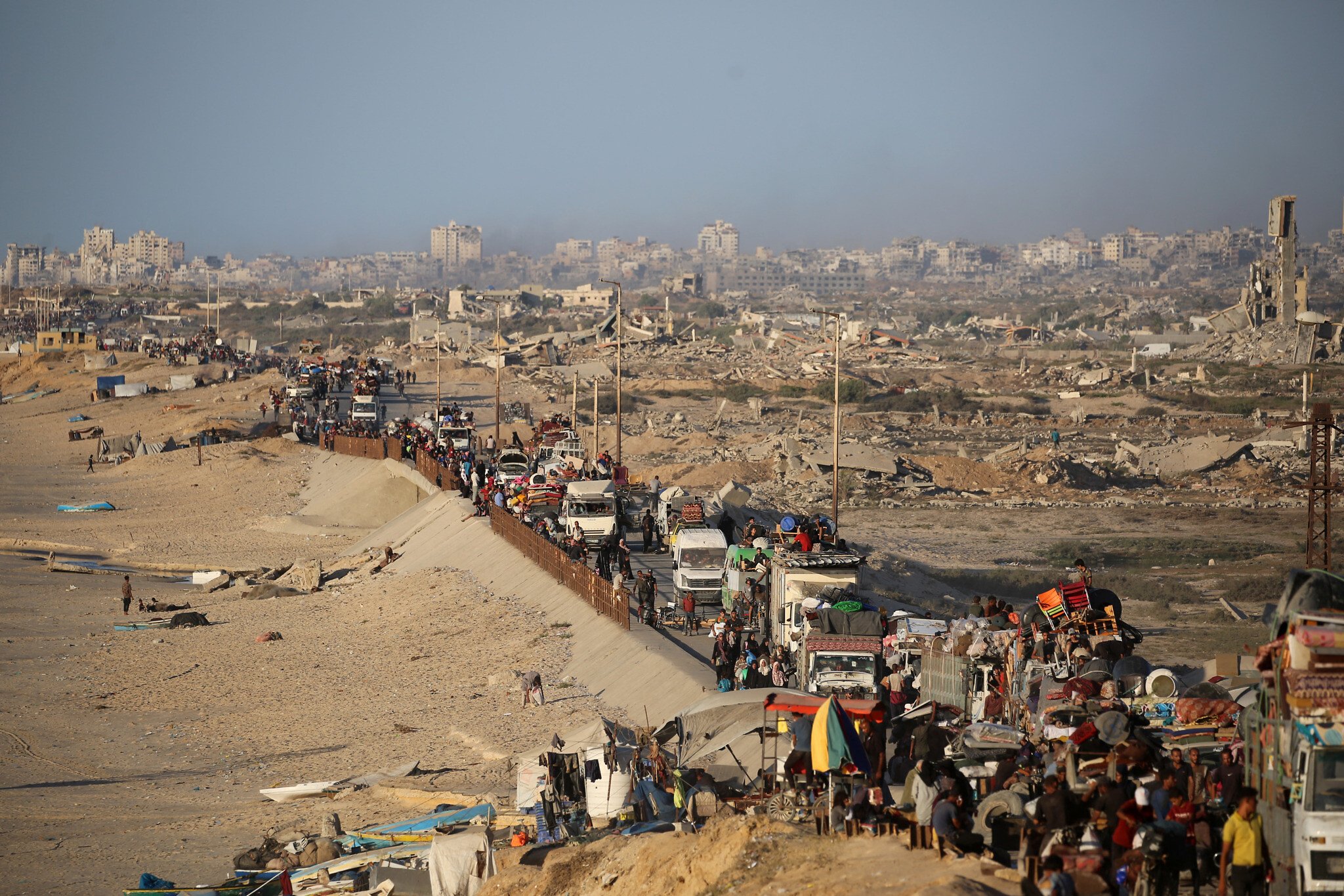 Displaced Palestinians move with their belongings southwards on a road in the Nuseirat refugee camp area in the central Gaza Strip on September 20, 2025, as Israel presses its ground offensive to capture Gaza City. (Eyad BABA / AFP)
Displaced Palestinians move with their belongings southwards on a road in the Nuseirat refugee camp area in the central Gaza Strip on September 20, 2025, as Israel presses its ground offensive to capture Gaza City. (Eyad BABA / AFP)Three IDF divisions, the 162nd, 98th and 36th, completed their entry to Gaza City in recent days, and have begun “operations in the Hamas terror strongholds” in the area, the army said Sunday.
Hamas-controlled authorities say 40 killed across Gaza
Gaza’s Hamas-controlled health authorities said Sunday that Israeli strikes killed more than 40 people, including 19 women and children. The figures cannot be independently verified and do not distinguish between civilians and combatants.
Health officials at Shifa Hospital, where most of the bodies were brought, said the dead included 14 people killed in a strike late Saturday, which hit a residential block in the southern side of the city. Health staff said a nurse who worked at the hospital was among the dead, along with his wife and three children.
Another strike that targeted a group of people in front of a clinic in the Bureij refugee camp (historically named, with no relation to war refugees) in central Gaza killed at least eight Palestinians, according to the Al-Awda Hospital. The dead include four children and two women, the hospital said. Another 22 people were wounded, it said.
Israel did not immediately comment on the individual strikes.
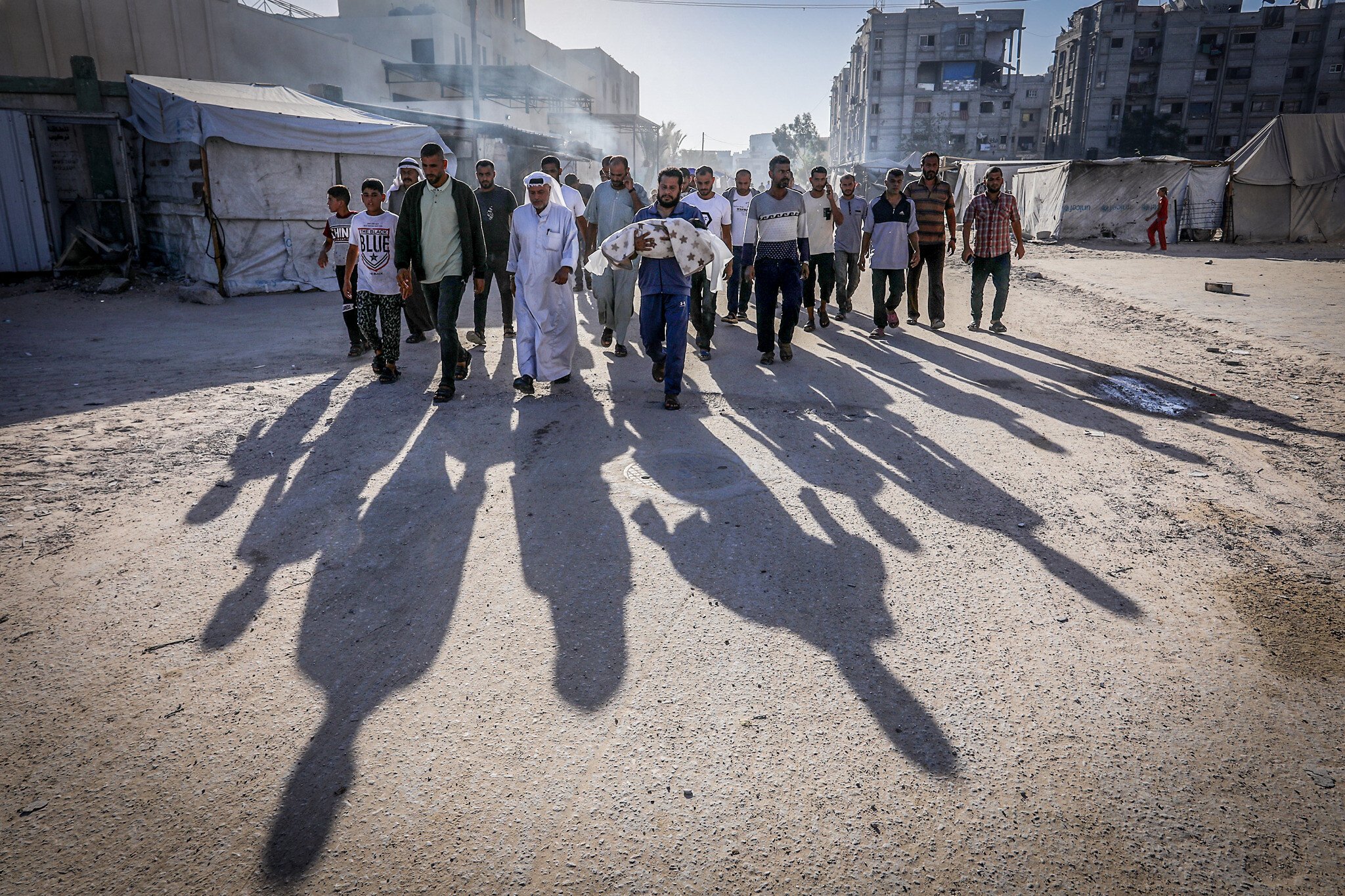 Several wounded and dead arrived at Nasser Hospital in Khan Younis after allegedly being shot by Israeli army fire near an American aid distribution center in Rafah, on September 20, 2025. (Abed Rahim Khatib/FLASH90)
Several wounded and dead arrived at Nasser Hospital in Khan Younis after allegedly being shot by Israeli army fire near an American aid distribution center in Rafah, on September 20, 2025. (Abed Rahim Khatib/FLASH90)The war in Gaza began October 7, 2023, when thousands of Hamas-led terrorists invaded southern Israel, killing some 1,200 people and taking 251 hostages, amid acts of brutality and sexual assault. Terror groups in the Strip still hold 48 captives, of whom 20-22 are believed by Israel to be alive.
The Hamas-run Gaza health ministry says more than 65,000 people in the Strip have been killed or are presumed dead in the fighting so far, though the toll cannot be verified and does not differentiate between civilians and fighters. Israel says it has killed over 22,000 combatants in battle as of August and another 1,600 terrorists inside Israel during the October 7 onslaught.
Israel has said it seeks to minimize civilian fatalities and stresses that Hamas uses Gaza’s civilians as human shields, fighting from civilian areas including homes, hospitals, schools, and mosques.
Israel’s toll in the ground offensive against Hamas in Gaza and in military operations along the border with the Strip stands at 469. The toll includes two police officers and three Defense Ministry civilian contractors. Link. The Military spokesman said " the IDF has “no other choice but to fight for our future. Our forces are working day and night, turning over every stone, to bring our hostages home, dismantle Hamas’s terror networks, and secure a safer region for all.” That is such bullshit. It is the government that is giving them no choice. This Gaza City operation is so unnecessary for anything to do with Israel's future security and especially so regarding the hostages. For the hostages, it is putting them at their highest risk, either of getting killed or injured in the bombings or being executed by their terrorists guards as the army approaches. Everyone knows this including the decision maker, Netanyahu, but it doesn't make any difference. It has come out recently in off the record conversations with a number of ministers that they do not agree at all with Netanyahu, not about this operation and not about the hostages. They also want the war to end and the hostages brought home with a deal. The problem is that they are too scared to utter a word that goes against Netanyahu's plans. His autocratic power has put the rest of the government into positions of total cowardice, lambs to his wolf. The only ministers who speak up are the war mongering extremists who see the war in Gaza as their best opportunity to achieve their messianic agendas of expelling all Palestinians and taking over their lands for Jewish settlements everywhere (Gaza and the West Bank - They also have not hidden their agendas of including Lebanon and Syrian in their colonialistic plans). Due to Netanyahu's weakness, cowardice and never ending narcissistic need to remain in power, he cowers before Smotrich and Ben Gvir's threats to bring down his government, and therefore allows them to dictate the government and army's directions. And those are the only reasons this war is still going on, not for Israel's future security and definitely not for the hostages.
Israel has called on Gaza City’s roughly 1 million Palestinian residents to flee ahead of the offensive there.
According to fresh IDF estimates Tuesday, some 640,000 Palestinians have so far evacuated to the Strip’s south.The rate of Palestinians leaving the area has increased in recent days, as the IDF advances deeper into Gaza City.
The Gaza City offensive has been criticized by Israeli hostage families and, according to widespread media reports, by IDF Chief of Staff Lt. Gen. Eyal Zamir himself, who is said to have told ministers it would needlessly endanger troops and the remaining 48 captives.
Aid agencies have warned that the offensive would deepen the humanitarian crisis in Gaza City, where the UN declared a famine last month in a report rejected by Israel.
On Monday morning, an officer was seriously wounded when gunmen opened fire on troops in the city. Troops killed Hamas gunmen in the firefight, the military said. Medical sources in the Hamas-run Strip reported at least 29 people were killed by Israeli fire, 25 of them in Gaza City.
Air defenses also shot down a rocket launched from Gaza City at the Israeli border community of Nahal Oz on Monday afternoon. The attack did not cause damage or injuries and was preceded by sirens activated in open areas, the Israel Defense Forces said.
It was the second rocket launch in as many days from Gaza City, which the IDF seeks to take over in the ground offensive launched last week.
Meanwhile, the IDF said it had struck and destroyed the Gaza City building from which Hamas fired two rockets at Israel’s southern port city of Ashdod on Sunday.
The IDF strike was carried out by the 215th Artillery Regiment, which is operating in Gaza City under the 162nd Division, the military said. Other forces of the division demolished Hamas infrastructure and killed 15 gunmen who were identified near the troops, according to the military.
Displaced Palestinians flee the northern Gaza Strip, by foot and in vehicles, carrying their belongings along the coastal road, near Wadi Gaza, September 20, 2025. (AP Photo/Abdel Kareem Hana)Also in Gaza City, the 98th Division directed an Israeli Air Force drone strike on a Hamas weapons manufacturing site, and another drone strike that killed a cell of operatives who had been identified near the troops, the IDF said.
In the Strip’s south, a drone strike was also carried out on a building where soldiers from the IDF’s Gaza Division had spotted several Hamas operatives, the military said.
Egypt says it will host Gaza reconstruction conference once ceasefire reached
Egyptian Prime Minister Mostafa Madbouly says that his country will host a Gaza reconstruction conference as soon as a ceasefire has been reached in the devastated territory.
“Egypt will, as soon as we reach a ceasefire, host an international reconstruction conference on the Gaza Strip to mobilize the necessary funding for the Arab-Islamic reconstruction plan,” he says at a conference on the two-state solution at the United Nations.
**There is nothing more important than getting them home! NOTHING!**
“I’ve never met them,But I miss them. I’ve never met them,but I think of them every second. I’ve never met them,but they are my family. BRING THEM HOME NOW!!!”
Red Alerts - Missile, Rocket, Drone (UAV - unmanned aerial vehicles), and Terror Attacks and Death Announcements
*10:40pm yesterday- Eilat- explosive drone intrusion
The Israel Defense Forces announced early Tuesday that an IDF officer had been killed in fighting in Gaza City the previous day.
The slain soldier was named as Maj. Shahar Netanel Bozaglo, 27, a company commander in the 7th Armored Brigade’s 77th Battalion, from Migdal Haemek.
According to an initial IDF probe, during the ongoing offensive in Gaza City on Monday, a Hamas operative fired an RPG at one of the 77th Battalion’s tanks, injuring the officer.
Bozaglo was taken to a hospital, where his condition worsened until he succumbed to his injuries.
He is the first soldier to be killed in the IDF’s new offensive against Hamas in Gaza City, launched last week.
Israel has called on Gaza City’s roughly 1 million Palestinian residents to flee ahead of the offensive there. According to fresh IDF estimates Tuesday, some 640,000 Palestinians have so far evacuated to the Strip’s south.
The rate of Palestinians leaving the area has increased in recent days, as the IDF advances deeper into Gaza City.
The Gaza City offensive has been criticized by Israeli hostage families and, according to widespread media reports, by IDF Chief of Staff Lt. Gen. Eyal Zamir himself, who is said to have told ministers it would needlessly endanger troops and the remaining 48 captives.

US privately cautioned against annexation, but Israel doesn’t think conversation is over — official
The Trump administration has privately cautioned Israel against annexing the West Bank in response the decision by numerous Western countries to recognize a Palestinian state, a senior Israeli official tells The Times of Israel.
However, Jerusalem does not feel that the warning marked “an end to the discussion” and Prime Minister Benjamin Netanyahu plans to discuss the matter with US President Donald Trump during their White House meeting next Monday, the Israeli official says.
To date, the Trump administration has avoided taking a public stance regarding potential Israeli annexation of the West Bank and has argued that Western countries are to blame for Jerusalem considering the step due to their decisions to recognize a Palestinian state. link Netanyahu holds on to certain delusions and they have all brought us to this point. His belief that he holds the monopoly for recognition of a Palestinian State was a delusion that he successfully sold to our allies for many years. His actions in Gaza was a wake up call to almost all of them. They brushed off Netanyahu's so called monopoly and made the decision to look out for the best future of both Israel and Palestine and that is a 2 State Solution.
The other delusion that Netanyahu has is that he can steer the policy of the US. He couldn't do that with Biden and that is one of the main reasons that he wanted Trump. He believes that he can twist Trump around his little finger as he has done until now. We are all hoping that Trump will finally show some backbone towards Netanyahu and force Netanyahu to end this horrible war and bring home all the hostages.
France, Saudis convene summit at UN to press for recognition of Palestinian state
France and Saudi Arabia are convening dozens of world leaders to rally support for a two-state solution, with several of them expected to formally recognize a Palestinian state — a move that could draw harsh Israeli and US responses.
The UK, Canada, Portugal and Australia all announced yesterday that they formally recognized a State of Palestine, with six more countries — France, Belgium, Luxembourg, Malta, San Marino and Andorra — set to follow suit today, ahead of world leaders’ addresses to the UN General Assembly. Link
World summit to meet on two-state solution; 6 more nations set to recognize Palestine
Israel, US to stay away; Israel rejects NY conference as a ‘circus,’ has vowed response to wave of recognitions announced on eve of UN General Assembly; Abbas to appear via video
France and Saudi Arabia will convene dozens of world leaders on Monday at 3 p.m. New York time (10 p.m. Israel time) to rally support for a two-state solution, with several of them expected to formally recognize a Palestinian state — a move that could draw harsh Israeli and US responses.
Israel and the United States will boycott the summit, said Israel’s UN Ambassador Danny Danon, describing the event as a “circus.” “We don’t think it’s helpful. We think it’s actually rewarding terrorism,” he told reporters on Thursday.
The UK, Canada, Portugal and Australia all announced on Sunday that they formally recognized a State of Palestine, with six more countries — France, Belgium, Luxembourg, Malta, San Marino and Andorra — set to follow suit on Monday, ahead of world leaders’ addresses to the UN General Assembly.
Prime Minister Benjamin Netanyahu has rejected the recognitions as well as the idea of Palestinian statehood, and vowed to respond upon his return from the UN. Some government ministers are pushing Israel to annex part of the West Bank in response.
Saudi Arabia has reportedly warned that West Bank annexation would have “major implications.” The UAE, with which Israel has relations, has also called annexation a “red line.”
A US State Department spokesperson called the recognitions “performative,” telling AFP on condition of anonymity: “Our focus remains on serious diplomacy, not performative gestures. Our priorities are clear: the release of the hostages, the security of Israel, and peace and prosperity for the entire region that is only possible free from Hamas.”
The US administration has also warned of possible consequences for those who take measures against Israel, including against France, whose president, Emmanuel Macron, is hosting the New York summit. Jerusalem is also considering specific bilateral measures against Paris, Israeli officials have said.
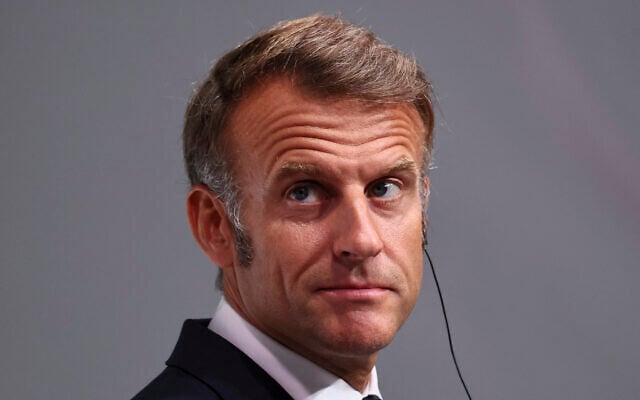 French President Emmanuel Macron attends a joint press conference with German Chancellor Friedrich Merz in Toulon, southern France, August 29, 2025. (Manon Cruz/Pool via AP)
French President Emmanuel Macron attends a joint press conference with German Chancellor Friedrich Merz in Toulon, southern France, August 29, 2025. (Manon Cruz/Pool via AP)The summit follows Israel’s launch of a ground offensive in Gaza City and amid few prospects for a ceasefire nearly two years into the war in Gaza, which was triggered by the Hamas-led October 7, 2023, attack on Israel.
The Western countries that are recognizing a Palestinian state have cited a growing sense of urgency to act now before the idea of a two-state solution vanishes forever. Israel has decried the pronouncements as a “prize for terror” following the October 7 attack, and with Hamas still holding Israeli hostages.
The General Assembly endorsed a seven-page declaration this month outlining “tangible, timebound, and irreversible steps” toward a two-state solution, while also condemning Hamas and calling on it to surrender and disarm.
Those efforts drew immediate rebukes from Israel and the United States.
“The New York Declaration is not a vague promise for the distant future, but rather a roadmap that begins with the top priorities: a ceasefire, the release of hostages, and the unimpeded entry of humanitarian aid into Gaza,” France’s Foreign Minister Jean-Noel Barrot told reporters on Thursday.
“Once the ceasefire and release of hostages are achieved, the next step is a plan for the day after, which will be on the agenda for Monday’s discussions.”
France has driven the move, hoping that Macron’s announcement in July that he would recognize a Palestinian state would give greater momentum to a movement hitherto dominated by smaller nations that are generally more critical of Israel.
“The New York Declaration is not a vague promise for the distant future, but rather a roadmap that begins with the top priorities: a ceasefire, the release of hostages, and the unimpeded entry of humanitarian aid into Gaza,” France’s Foreign Minister Jean-Noel Barrot told reporters on Thursday.
“Once the ceasefire and release of hostages are achieved, the next step is a plan for the day after, which will be on the agenda for Monday’s discussions.”
France has driven the move, hoping that Macron’s announcement in July that he would recognize a Palestinian state would give greater momentum to a movement hitherto dominated by smaller nations that are generally more critical of Israel. Link
Belgium says its Palestinian statehood recognition to take effect once hostages freed, Hamas removed from power
Both Belgium's stance and that of the UK are the best expression of what should have come from any other country supporting a 2 State Solution. Any country supporting the 2 State Solution needs to recognize both states, Israel and Palestine. Unfortunately, for so long, most of Israel's allies bought into Netanyahu's position that he, alone held the veto about Palestinians statehood. And now, the narrative that he is selling is that recognition is a reward to Hamas, when in fact, a 2 State Solution is the complete opposite of what Hamas stands for. Hamas is using this recognition as a publicity tool and Netanyahu is playing right into it. As Macron said in a TV interview with Israel's Channel 12, recognition is a reward for peace, not for Hamas. If every country that recognized the State of Palestine and every country that will recognize it, would state that their recognition is contingent upon Hamas' outster and disarming and/or instituting further sanctions on Hamas as the UK did, it shows that this recognition is indeed a reward for peace and for Israel and is against Hamas.
- As Abraham Accords turn 5, Israel’s willingness to use its military might becomes concern for allies
Historic agreements have proven resilient during Gaza war, but Jerusalem’s aggressive posture post-October 7 has region wondering if Israel is out to become a hegemon, not partner
This handout picture released by the official Saudi Press Agency (SPA) shows, (L-R) Gulf Cooperation Council (GCC) Secretary-General Jassim al-Budaiwi, Kuwait's Crown Prince Sheikh Sabah Khaled al-Hamad al-Sabah, Qatar's Emir Tamim bin Hamad Al-Thani, Oman's Deputy Prime Minister for Defense Affairs Shihab bin Tarik Al Said, Saudi Arabia's Crown Prince Mohammed bin Salman, Bahrain's King's Personal Representative Abdulla bin Hamad Al Khalifa, and the UAE's Vice President and Deputy Prime Minister Sheikh Mansour bin Zayed al-Nahyan, posing for a group picture during the 2025 Arab-Islamic emergency summit in Doha on September 15, 2025. (Saudi Press Agency / AFP)On September 15, 2020, the foreign ministers of Bahrain and the United Arab Emirates joined US President Donald Trump and Prime Minister Benjamin Netanyahu at the White House. On a balcony overlooking the South Lawn, they envisioned a region transformed.
UAE Foreign Minister Abdullah bin Zayed predicted that the accord’s “reverberations will be reflected on the entire region.”
“For too long, the Middle East has been set back by conflict and mistrust, causing untold destruction,” lamented Bahrain’s Foreign Minister Abdullatif al-Zayani.
Exactly five years later, bin Zayed was at a different gathering — one that underscored how little the Middle East had changed. Coming together last week in Qatar in the aftermath of a failed Israeli strike on Hamas’s leaders, senior officials from nearly 60 countries — including Israel’s archenemy Iran, and the three countries that normalized relations exactly 5 years before — issued a joint statement from the summit urging “all states to take all possible legal and effective measures to prevent Israel from continuing its actions against the Palestinian people,” including “reviewing diplomatic and economic relations with it, and initiating legal proceedings against it.”
Five years after the signing of the Abraham Accords, there are undoubtedly encouraging signs of regional potential. At the same time, there is no question that ties have not met the heady expectations expressed at the White House in 2020, and that the October 7, 2023, Hamas attacks sparked processes that are placing new strains on the relationships.
“Within the larger process, there are many events that distract us, delay us, stop us,” acknowledged Eitan Naeh, Israel’s ambassador to Bahrain until last month. “You veer off the path and then you come back — but you’re heading somewhere. I think it’s quite clear where we can get to, provided we don’t run into a Hamas massacre on a Saturday and a global pandemic.”
Optimism and concern
The Abraham Accords enjoyed three relatively stable years until the Hamas invasion and massacre.
Ties moved ahead rapidly under the Naftali Bennett-Yair Lapid government, with both leaders visiting Israel’s three newest Arab allies. Lapid hosted their foreign ministers in Israel at the Negev Forum and agreements across a range of fields were signed.
Foreign Minister Yair Lapid is greeted on the tarmac by UAE Minister of State Ahmed Al Sayegh at the beginning of Lapid’s two-day visit, June 29, 2021 (Shlomi Amsalem, GPO)“We set up the embassy, a team, and the infrastructure for relations in terms of dialogue with the leadership and with the heads of key bodies there — the Foreign Ministry, the Finance Ministry, the prime minister, the king’s palace, the security apparati,” Naeh said of his work in Bahrain. “And of course, the business community, the youth. Dialogue with media organizations, journalists.”
But even before the war, there were clear indications that the accords faced long-term challenges.
According to polling, they were consistently becoming less popular on the streets of Israel’s new allies. Washington Institute polling showed 45% of Bahrainis holding very or somewhat positive views of the agreements in November 2020. That support had steadily eroded to a paltry 20% by March 2022.
The trend was the same in the UAE. The 49% of the country that disapproved of the Abraham Accords in 2020 has grown to over two-thirds as of August 2022. And only 31% of Moroccans favored normalization at that time, according to Arab Barometer.
When Netanyahu and his hard-right allies came to power in late 2022, ties shifted noticeably downhill. The Negev Forum was not repeated, and high-level visits dried up. No senior Bahrani, Emirati or Moroccan officials visited Israel.
But aspects of the overall trend were still positive, and some relationships expanded.
Morocco, whose normalization agreement with Israel isn’t officially part of the Abraham Accords, did not experience a significant downturn under the current government. Though Rabat refused to convene the second Negev Forum over West Bank violence, Netanyahu announced Israel’s recognition of Morocco’s sovereignty over Western Sahara in 2023, after which King Mohammed VI invited Netanyahu to his country.
Israel also appointed its first-ever military attaché to the kingdom, and the Knesset speaker and interior minister made official visits as a series of agreements were signed.
Then-foreign minister Eli Cohen’s visit to Bahrain in September 2023 was a clear indication of the trajectory of ties before the Hamas invasion one month later. He held well-publicized meetings with the prime minister, foreign minister, and finance minister, viewed a photography exhibit from young Bahrainis who had visited Israel, and had a dinner with 250 local guests, including top business leaders.
Peace in a time of war
It should come as no surprise that the extended war in Gaza and in other theaters across the Middle East placed new strains on the Abraham Accords.
As before the war, there is reason for optimism, alongside warning bells.
Despite regular criticism of Israeli policies in Gaza throughout the war in official statements from its Arab partners, Jordan is the only one to officially recall its ambassador from Israel during the war. Bahrain’s ambassador Khaled Al Jalahma finished his tenure over the summer, and Manama has yet to appoint a replacement.
The Egyptian and Moroccan envoys have avoided public events and the media, but regularly fly between the countries to continue their work behind the scenes.
UAE Ambassador Mohammed Al Khaja has avoided the media but has attended high-profile events. He sat next to Isaac Herzog at the President’s official Independence Day reception in May, and embraced Jon Polin as his wife Rachel spoke about their son Hersch, who was executed by Hamas last August.
The fact that the new diplomatic relationships have survived two years of war in Gaza, and the endless stream of images of Palestinian suffering broadcast into the living rooms of the public, is evidence of how durable the relationships are.
Notably, despite the change in the tenor of the ties, Israel’s bilateral trade has grown significantly with all three countries. Compared to the same period in 2023, bilateral trade with Bahrain in the first seven months of 2024 increased by over 900%, with the UAE up 4% and Morocco up 56%, according to the Abraham Accords Peace Institute.
.The same leaders who made the decision to normalize are still in power, and they are not about to admit that they made a strategic mistake in 2020
Israel is helped somewhat by the fact that its new partners are not democracies in which administrations change every few years. The same leaders who decided to normalize are still in power, and they are not about to admit that they made a strategic mistake in 2020.
“If we managed to do one thing, it was to preserve the relations — or to keep the level of dialogue as high as possible at all levels,” said Naeh.
The UAE has hosted a series of prominent Israelis during the war, but mostly opposition figures such as Lapid and Bennett.
More recently, it has hosted government officials as well. Foreign Minister Gideon Sa’ar was in Abu Dhabi in April to meet with his Emirati counterpart, and Deputy Foreign Minister Sharren Haskel met mid-level ministers in Abu Dhabi earlier this month.
“We’re not talking about an improvement of bilateral ties,” cautioned Moran Zaga, Gulf scholar at MIND Israel. “All the official releases that came out of the minister’s visit were about the Palestinian issue and the need to help the Palestinians. Meaning they are leveraging Israel to assist the Palestinians, and that’s how the statements came out.”
The Emiratis are deeply involved in all aspects of aid to Gaza, including desalination plants, aid convoys, airdrops, and field hospitals. Think tanks in the UAE have also begun discussing the country’s role in post-war Gaza.
Still, even the newfound Emirati focus on the Palestinians is an opportunity for Israel. The UAE sees a national interest in leading in Gaza and the Palestinian theater. There is an economic benefit to be had from the assistance that will flow to the Strip when fighting ends. Taking the lead on reconstruction is also a sign of the UAE’s regional leadership. And, perhaps most importantly, it allows the Emirati rulers to show the public the benefit to the Palestinians that their ties with Israel would bring.
They can be involved in all aspects of aid because of their preexisting relationship with Israel, which gives them far more access to Gaza than other regional actors.
Why take the risk?
Last week’s summit in Doha wasn’t the only indication that the long-term success of the ties isn’t guaranteed.
Israeli tourists are still flying, especially to the UAE, but there is no reciprocal flow of Arab tourists. People-to-people initiatives have ground to a halt as well during the war.
Most joint economic projects have come to a stop, and if they are happening, they are kept under the radar. While businesses involved in areas that the Arab governments prioritize — defense, food tech, cybersecurity — are moving forward with deals, others are looking elsewhere.
“If you don’t need Israel for it, why take the risk?” asked Joshua Krasna, Director of the Center for Emerging Energy Politics in the Middle East.
“The profile of the relationship is going to get even lower than it’s been up until now,” he warned.
The new Iran
Israel has always seen its military and intelligence might as a leading reason for Arab countries to seek ties with the Jewish state. It has led the military fight against Iranian influence in the region for years, and since October 7, Israel has enjoyed stunning success in weakening the Islamic Republic and its proxies.
“A strong Israel is an advantage for the region,” said Naeh. “I think they understand that. Who really benefits from a weak Israel?”
People pass in front of the Syrian Defense Ministry building that was heavily damaged by Israeli airstrikes in Damascus, Syria, July 17, 2025. (AP/Ghaith Alsayed)
But Israel might now be overplaying that hand.
Israel’s Arab partners understood why it went to war in Gaza and in Lebanon, and why it carried out strikes against the Houthis in Yemen.
While they were happy to see Israel cut down Iran’s ballistic missile and nuclear program during the operation in June, Israel’s Gulf partners feared that Iran could turn on them to try to force the US to rein in Israel.
Israel’s July strikes near the Syrian presidential palace to force the new government in Damascus to protect the Druze in Suweida were also concerning, especially as the pro-Western bloc in the Middle East works to shore up the Ahmed al-Sharaa government, and while Israel was in quiet talks with Damascus.
The Qatar strike crossed the line. It was an Israeli attack on a non-enemy state, one with a decades-long history of ties with Israel.
“From their perspective, Israel is a loose cannon in the region,” said Krasna. “Israel has externalized its security considerations and now sees itself as being permitted to use force anywhere it feels its interests are threatened throughout the region, and without very much diplomatic consideration.”
This frame grab taken from an AFPTV footage shows smoke billowing after an Israeli strike in Doha’s capital, Qatar, on September 9, 2025. (Photo by Jacqueline PENNEY / AFPTV / AFP)
“The post-Oct. 7 military campaigns — spanning Gaza, Lebanon, Syria, Yemen, and culminating in Israel’s historic direct strike on Iran — have led many Gulf officials to conclude that Israel no longer seeks mere deterrence, but rather dominance,” wrote Emirati researcher Mohammed Baharoon and Middle East Institute Alex Vatanka.
“The Iranian threat has been greatly diminished while Israel presents a new challenge of its own to regional stability, raising fundamental questions about the accords.”
The regional partners even wonder how far post-October 7 Israel is willing to go. “If Israel decides that there’s something threatening in Abu Dhabi or Dubai, who’s to prevent them from acting there?” asked Krasna.
And there is a growing concern that Israel’s Arab partners will pay the price for Israel’s strikes in Iran and across the Middle East.
The possibility that Israel could annex parts of the West Bank in response to this week’s wave of Western recognition of a Palestinian state is a further reason for regional leaders to worry — not only about them being forced to take some action against Israel, but also about the ability of Israel’s leaders to overcome the tactical concerns of coalition politics to advance a vision of a stable and reformed Middle East. Israel made peace with autocratic kingdoms and emirates, and their tolerance for the demands of messy democratic politics is limited.
Despite all the challenges, however, Israeli diplomats are confident that they can move things forward again… once the war ends.
“Foundations have been laid,” said Naeh. “We will, of course, need to nurture this anew. We’ll need to rebuild. We’ll need patience.” link
Western nations offer to help treat Gazan patients in West Bank, call for medical corridor to be reopened
Dozens of Western nations call for the reopening of the medical corridor between Gaza and the West Bank, offering to provide financial aid and medical staff or equipment to treat Gaza’s patients in the West Bank.
“We strongly appeal to Israel to restore the medical corridor to the occupied West Bank, including East Jerusalem, so medical evacuations from Gaza can be resumed and patients can get the treatment that they so urgently need on Palestinian territory,” the countries say in a joint statement released by Canada.
Austria, Belgium, Canada, France, Germany, Italy, the European Union and Poland are among the two dozen signatories of the statement. The United States is not listed as a signatory.
“We furthermore urge Israel to lift restrictions on deliveries of medicine and medical equipment to Gaza,” the statement says.
Ship attacked in sea near coastal area of Yemen held by Houthis; no injuries
A ship traveling off the coast of Yemen in the Gulf of Aden came under attack earlier today, officials say, though no one was hurt. It was not clear who launched the attack.
The captain of the vessel heard a splash and explosion in the vicinity of the vessel, the British military’s United Kingdom Maritime Trade Operations center says in a statement.
“Vessel and crew reported safe and proceeding to next port of call,” the center says in a statement.
The attack happened about 225 kilometers (140 miles) off the coast of Aden, which is held by forces loyal to Yemen’s exiled government.
Yemen’s Iranian-backed Houthi rebels have launched a series of attacks targeting shipping through the Red Sea corridor, but did not immediately claim the attack. It typically takes them hours or even days to claim an assault.
The Houthi rebels have been launching missile and drone attacks on Israel and on ships in the Red Sea in response to the war in Gaza, saying they were acting in solidarity with Palestinians. Their attacks over the past two years have upended shipping in the Red Sea, through which about $1 trillion of goods passed each year before the war.
Saudi Arabia, France: Annexation a ‘redline,’ ending Gaza war and securing release of hostages an ‘absolute priority’
A joint statement from Saudi Arabia and France declares that “ending the war in Gaza and ensuring the release of all hostages” is their “absolute priority,” and notes that “any form of annexation is a redline” in an apparent warning to Israel not to retaliate to the recognition of a Palestinian state by a number of nations.
“The situation in Gaza continues to deteriorate with the intensification of the Israeli ground offensive in Gaza city, and with civilians and hostages paying an unjustifiable price due to the ongoing war,” reads the statement released after a high-profile meeting at the United Nations aimed at solidifying support for a two-state solution.
The gathering demonstrated overwhelming international support for the Palestinian cause and the unprecedented state of isolation that Israel finds itself in less than two years after Hamas’s October 7 attack, in which some 1,200 people were killed and 251 hostages abducted.
“It is now time for the international community to move from words to deeds,” the statement reads, welcoming the recognition of a Palestinian state in recent days by a number of countries.
“We call for a permanent ceasefire, the release of all hostages, exchange of prisoners, and unhindered delivery of humanitarian assistance throughout Gaza and the full withdrawal of Israeli forces from Gaza,” the statement reads.
The nations also say they commit to supporting a “temporary international stabilization mission upon invitation by the Palestinian Authority” and commit to increasing their training commitments for Palestinian security forces.
“We stress the importance of unifying the Gaza Strip with the West Bank under the Palestinian Authority,” the statement reads. “In the context of ending the war in Gaza, we reiterate that Hamas must end its rule in Gaza, disarm and hand over its weapons to the Palestinian Authority, with international engagement and support, in line with the objective of a sovereign Palestinian State.”
“We commend the historic commitments made by President Mahmoud Abbas including to the peaceful settlement of the question of Palestine, the continued rejection of violence and terrorism, and his statement that the Palestinian State has no intention to be a militarized State and is ready to work on security arrangements beneficial to all parties, in full respect of its sovereignty,” the statement reads, adding that it welcomes reforms undertaken by the PA including the scrapping of the pay-to-slay system, reforms within the education system and a commitment to hold free elections within a year of a ceasefire.
The statement also “urge[s] the Israeli leadership to seize this opportunity for peace, and to issue a clear public commitment to the Two-State solution,” and calls for an end to all settlement activities and settler violence.
“We reiterate that any form of annexation is a redline for the international community that bears serious consequences and constitutes a direct risk to existing and future peace agreements,” the statement says.
“In the context of ending the war in Gaza, we reiterate that Hamas must end its rule in Gaza, disarm and hand over its weapons to the Palestinian Authority, with international engagement and support, in line with the objective of a sovereign Palestinian State.”
France, Belgium, Luxembourg, Malta, San Marino and Andorra issued statements on their recognition of a Palestinian state at the conference. The UK, Australia, Canada and Portugal made their own announcements recognizing Palestine a day earlier.
Both the US and Israel have argued that recognition of a Palestinian state at this time amounts to a reward for Hamas that won’t advance efforts to release the 48 remaining hostages and end the war in Gaza, but could well harm those goals.
Acronyms and Glossary
ICC - International Criminal Court in the Hague
IJC - International Court of Justice in the Hague
MDA - Magen David Adom - Israel Ambulance Corp
PA - Palestinian Authority - President Mahmud Abbas, aka Abu Mazen
PMO- Prime Minister's Office
UAV - Unmanned Aerial vehicle, Drone. Could be used for surveillance and reconnaissance, or be weaponized with missiles or contain explosives for 'suicide' explosion mission
Join my Whatsapp update group https://chat.whatsapp.com/IQ3OtwE6ydxBeBAxWNziB0
Twitter - @LonnyB58 Bluesky - @lonny-b.bsky.social
My blogs in The Times of Israel my blogs
Substack - https://lonnyb.substack.com/
Twitter - @LonnyB58
My blogs in The Times of Israel my blogs
Substack - https://lonnyb.substack.com/

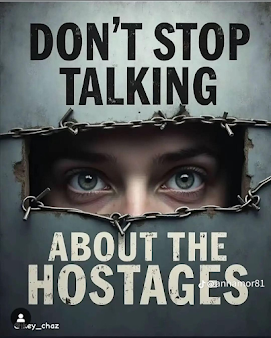


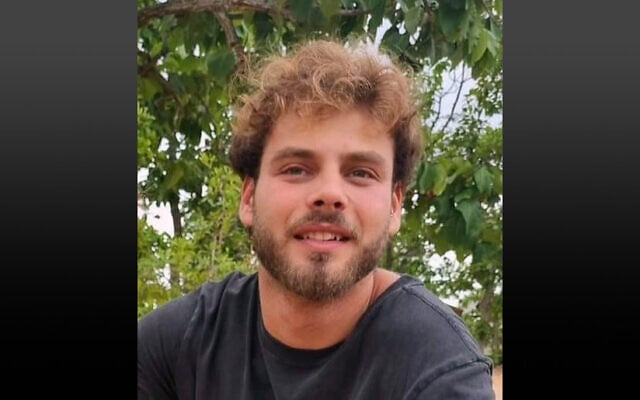

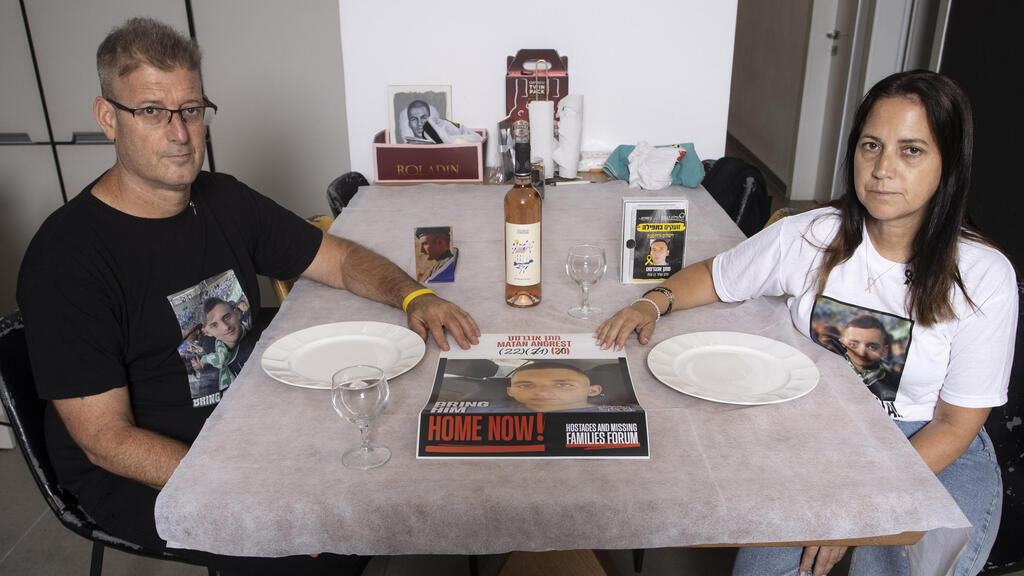
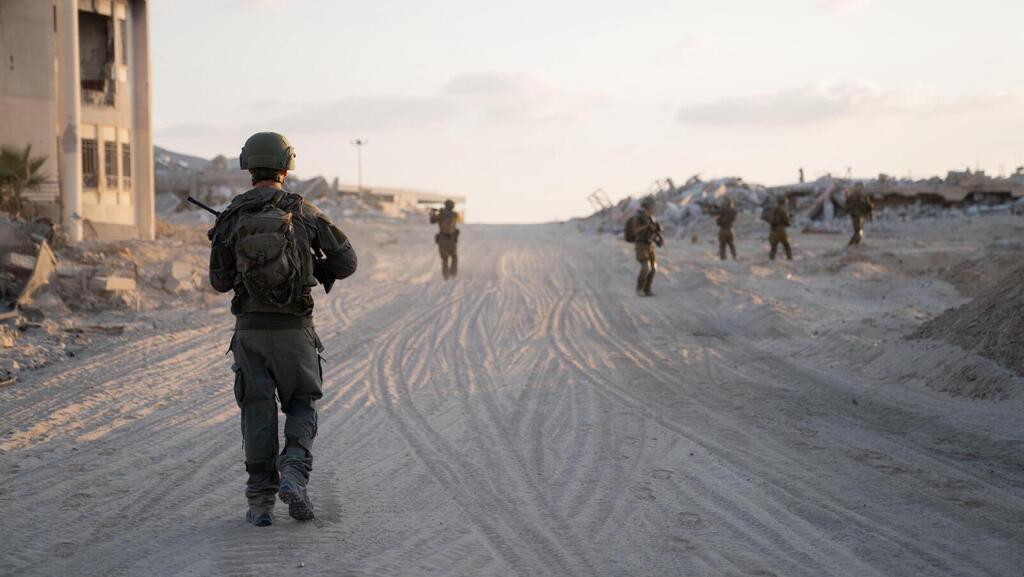
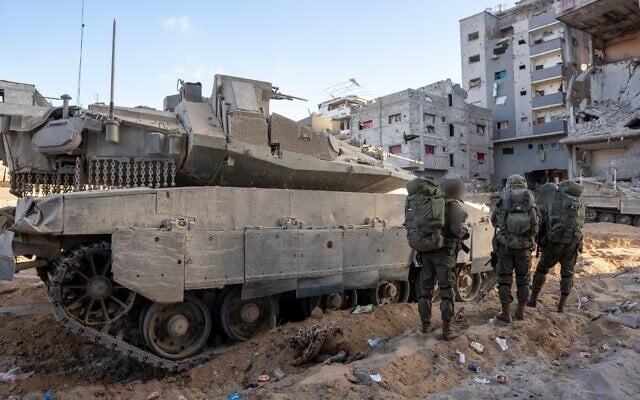

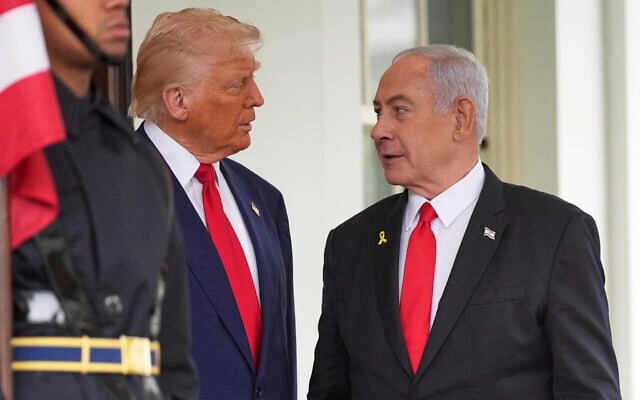




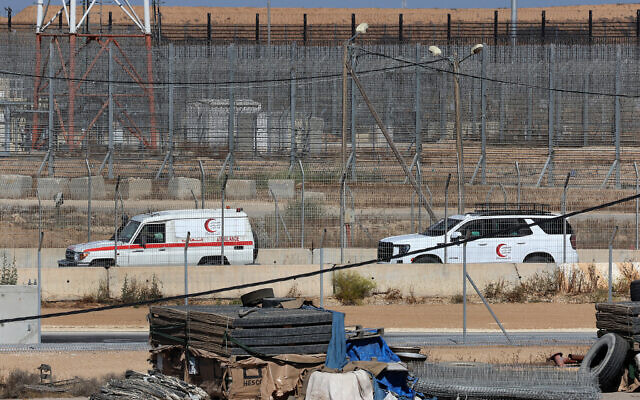
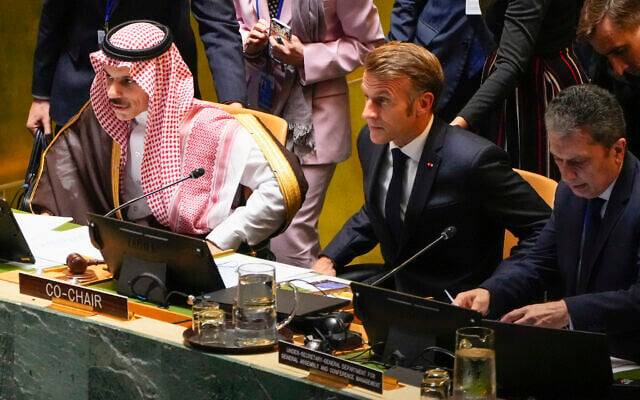



Comments
Post a Comment